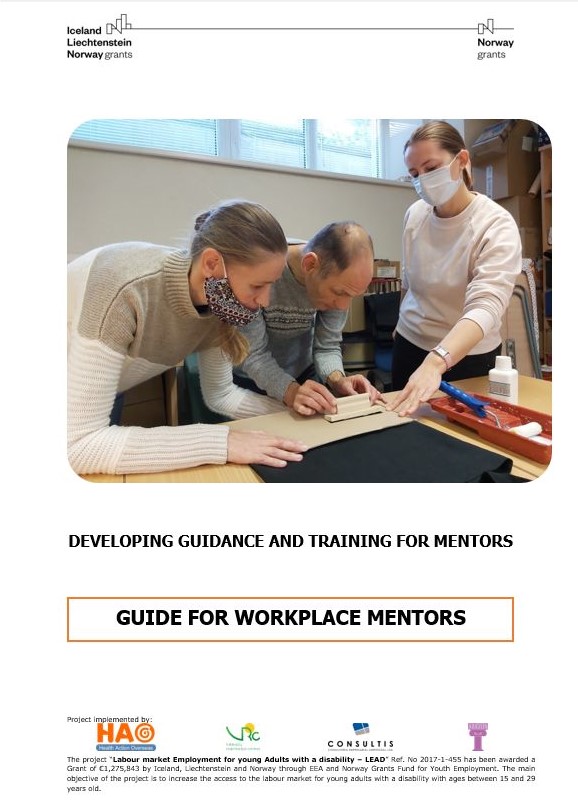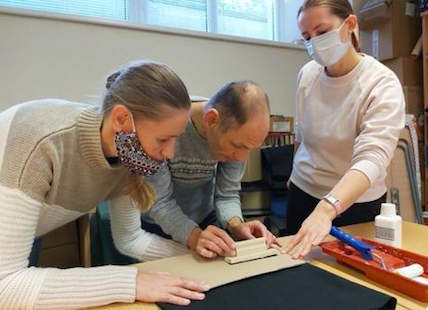The Guide is addressed to firms interested in ensuring an inclusive work environment. It was developed by the LEAD team in order to help companies integrate people from vulnerable social groups, including people with disabilities.
The Guide contains useful information regarding: the role of a mentor in the workplace; the benefits of mentoring; mentor’s key qualities and skills; tips for mentors (inclusive welcoming techniques, communication techniques, sharing professional knowledge, problem-solving, conflict management, things that should be avoided). Last but not least, our colleagues offer useful resources for employers.
 “Starting a new job can be challenging, especially for young adults from disadvantaged social groups or those with disabilities. Effective support is essential for these individuals to secure and sustain employment in the open labour market. In addition to the individual counseling provided by the Supported Employment specialist, a good mentor can help the mentees in different ways: cultivating the sense of belonging by bridging the gap between the new employees and their co-workers, helping the employees develop skills or competences by demonstrating a task, guiding the employee through solving a problem, giving constructive feedback about their work”, explained Alina Dobrescu, Coordinator of the Supported Employment Programme.
“Starting a new job can be challenging, especially for young adults from disadvantaged social groups or those with disabilities. Effective support is essential for these individuals to secure and sustain employment in the open labour market. In addition to the individual counseling provided by the Supported Employment specialist, a good mentor can help the mentees in different ways: cultivating the sense of belonging by bridging the gap between the new employees and their co-workers, helping the employees develop skills or competences by demonstrating a task, guiding the employee through solving a problem, giving constructive feedback about their work”, explained Alina Dobrescu, Coordinator of the Supported Employment Programme.
The mentoring process has benefits not only for the young person, but also for mentor and employer. For example, the opportunity to teach or advise others can increase the mentor’s confidence, self-esteem and job satisfaction. Also, mentoring can give them a greater sense of purpose and responsibility for their own careers and can prepare them to take on greater responsibility and leadership roles. Moreover, mentors can build stronger communication skills, and can improve their supervisory skills, including relationship building, planning and problem solving.
Also, mentoring has benefits for employers, such as: increased productivity, reduced training costs due to the one-to-one interaction between mentor and mentee, increased teamwork between employees from different generations and cultural backgrounds, reduced staff turnover.
“What are the key-qualities and skills of good mentors? They have solid foundation in their field; they are willing to share their knowledge, and to take on additional responsabilities. Good mentors not only impart knowledge and skills, but also help shape the mentee’s attitude and perspective towards their personal and professional life.They are altruistic, patient, understanding, empathetic, supportive, and good listener. Good mentors are honest, communicate well, give constructive feedback, set clear, realistic goals and expectations. They push the mentee to new heights and encourages them to try new things”, emphasized Alina Dobrescu. In our colleague’s opinion, the selfless attitude is fundamental for the mentor-mentee relationship, as it involves prioritizing the needs of others before over one’s own.
The project “Labour market Employment for young Adults with a Disability – LEAD” is funded by Iceland, Liechtenstein and Norway through the EEA and Norway Grants Fund for Youth Employment.
Cristina Șerbănescu


